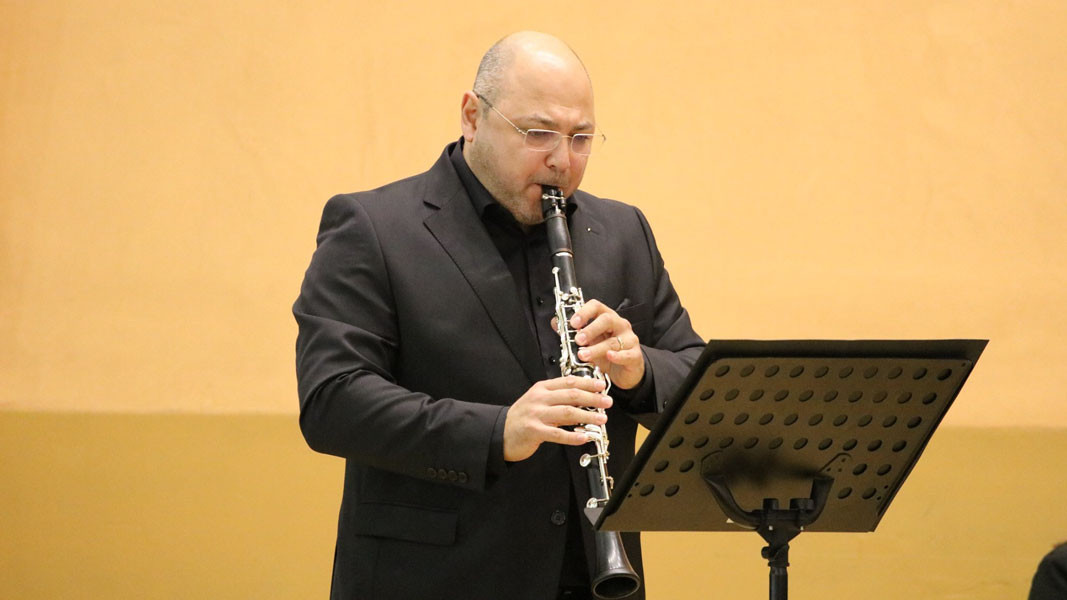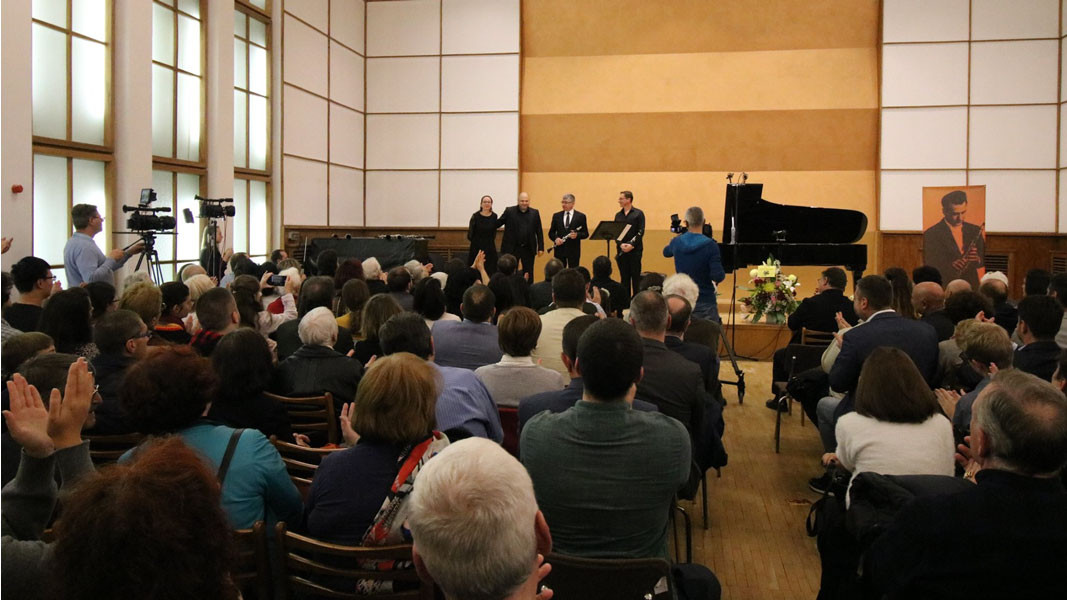The 100th anniversary of the birth of Prof. Sava Dimitrov has become an occasion for several cultural events. As it became clear days ago, an international competition bearing the name of the distinguished professor has been set up. His merits in the creation of the Bulgarian school of clarinet playing are invaluable. Part of his contribution is the replacement of the so-called German system with the new Boehm system, popular at the time, which provided much greater opportunities for the performer. It all began back in 1947 when Prof. Sava Dimitrov graduated from the Music Academy in Sofia and continued his studies with a specialization in the Czech Republic.
“By that time he had practiced on a German instrument which was a gift from his fellow citizens of Popovo. Having decided to support the talented young man, they organized a charity concert and with the money raised bought him a clarinet and a saxophone, which he used when he arrived in Sofia to study,” says his grandson Prof. Sava Dimitrov – Dean of the Instrumental Faculty of the National Academy of Music and a teacher in clarinet. After being introduced to the new system in the Czech Republic, hard work started in order to create a pedagogical repertoire through which to implement this system. He published a unique work – a series of sheet music covering the entire spectrum from technical difficulties to concert performances where everyone needs to show their individuality.
The material is well arranged and it even contains elements of Bulgarian folk music, characteristic rhythms and melodies that set Bulgarians apart from all other nationalities. Following these lessons, one can truly become a good clarinet player. Higher achievement is a matter of ambition on the part of the student and the teacher, Prof. Sava Dimitrov Jr. claims. His grandfather's clarinet textbook has been translated into at least five foreign languages including Portuguese, Spanish, Khmer and more. "It was a pleasure and a privilege for me to be a student of my grandfather's at the Academy and then of my father, who also became a lecturer, before I took the job from him. My grandfather always treated his students and all clarinetists in general as one family in which we all help each other in order to become better musicians. Of course, there are those among his alumni who have earned great recognition around the world. This is the place to mention Prof. Petko Radev – one of his first students, a renowned musician who won first prizes at all major competitions existing at that time and then for many years he was the first clarinetist at La Scala. He was a very talented student. Representatives of our school have found realization all over the world – Cuba, Cambodia, Venezuela and various South American countries, where they still study according to the system my grandfather founded,” Prof. Sava Dimitrov Jr. says.

In late November, Prof. Sava Dimitrov Jr. organized and participated as a performer in a concert dedicated to the anniversary.
“The professor's name has always attracted a good audience. I have allowed myself to include musicians who have preserved their strong link with the school. I invited his students from different generations. We were guided by the idea of honoring his memory by presenting Grand Duo by Weber, the first Brahms sonata, and the Clarinet and Piano Sonata by Saint-Saens. Besides being essential to the clarinet repertoire, they were favorites of the professor and he always taught them with pleasure. We have shown unity in thinking and this is the most important in the development of a school in music. I think that the Bulgarian school is one that not only interprets the style peculiarities of works correctly, but shows the right path to success through knowledge. Only through the strictest discipline and faith in the path shown by those who know, could one achieve results – and this is what I have learned from my teachers.”

Prof. Dimitrov also expressed concern that the musician’s profession is not an attractive occupation at the moment. The teaching system has not changed, there are wonderful teachers, but graduates do not have good prospects as the remuneration for orchestra musicians is offensively small. On the other hand, at every high-level state event, national holiday or official occasions, we hear the performances of our wonderful soloists, choirs and orchestras.
English: Alexander Markov
Photos: Zdravko PetrovTradition and modernity intertwine in the songs of the musicians from the ethno jazz formation JazzBoree. This is also the case in their latest song, "Pladney", inspired by our folk stories of love. Singer Savina Plamenova authored the music and lyrics..
The Children’s Radio Choir of the Bulgarian National Radio is celebrating its 65 th birthday with a concert on the day it was founded – 21 March. For 65 years the children from the choir have been ambassadors of Bulgarian culture around the world...
The Society of Orpheus and Bacchus, also known as the SOBs, will perform tonight at 7pm at the Chamber Opera - Blagoevgrad. This is an a cappella singing group from Yale University, founded in 1938 , which makes the Society of Orpheus and..
The Chamber Orchestra of the Bavarian Radio Symphony Orchestra with artistic director Radosla w S z ul c is among the special guests..
DEEP ZONE Project presents "Istina/Truth" – their version of the well-known song by Milena Slavova, which marked the Bulgarian music at the turn of the..
Angel Dyulgerov is a guitarist, violinist, composer, arranger and band leader who, in recent years, has worked with some of the biggest stars of..

+359 2 9336 661
